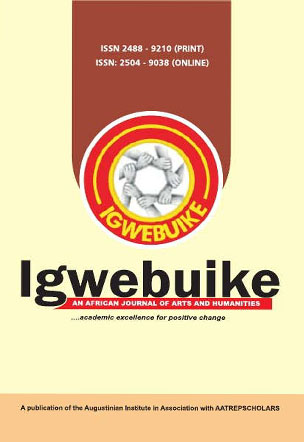
Vol. 9 No. 4, 2023
ABSTRACT
This paper examines African traditional religion and the success of the Christian missionary endeavors: a historical enquiry. This study collected primary data from interviews and the secondary data from review of literatures in journal, articles, textbook and internet. The sub literatures of this study were analyzed using content analysis method. The study found that African traditions were expressed through folk tales, songs, festivals, beliefs in spirit beings, higher and lower gods, veneration of the dead, use of magic and traditional African medicine. The study concluded that the existence of African Traditional Religion (ATR) was never hostile to Christianity in Igboland rather, it welcomed it and allowed it to blossom on the African soil. That it was through African Traditional Religion (ATR) that the 19th century Christian missionaries recorded tremendous success in their missionary enterprise in Igbo land and Nigeria at large. This could not be possible without some contributive factors of ATR enabling the Christian faith to thrive in the indigenous land. Thus, this study recommended that the existence of African Traditional Religion (ATR) should be recognized in the practice of Christianity. Also, the way early Christian missionaries work and interact with African Traditional Religion (ATR) to convert people should be a great lesson for modern day Christians not to abolish African Traditional Religion (ATR) entirely as some those practices can be capitalized on for evangelism and souls winning.
